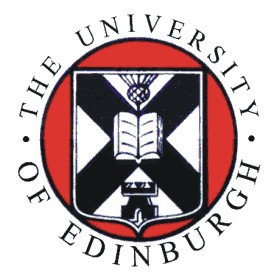Team:Edinburgh
From 2008.igem.org
Welcome to the University of Edinburgh 2008 iGEM Team Wiki!
歡迎光臨愛丁堡大學2008年iGEM隊之維基!
Introduction
- It is predicted that by 2015 supplies of easy-to-access oil and natural gas will no longer keep up with demand. This is prediction based on the current rate of consumption, which is expect to increase. The repurcussions of this are already being felt on a global level with food prices rising.
- The burning of fossil fuels is also fueling global warming. This is having negative effects on crop yields worldwide, with longer droughts occuring year on year, especially in Africa and Australia. The melting of the polar ice-caps which accompanies this will raise sea-levels, inundating currently arable land, reducing the land available for ever enlarging world population.
- The rising cost of food coupled to the apparent unsustainability of the human race at its current size and with current land use and technologies makes this the perfect time to contemplate the restructuring of global agriculture. With this in mind, the Edinburgh '08 iGEM team are investigating the possibility of engineering bacteria to synthesise starch from waste biomass, either for use as a food-source or an energy-source, the latter freeing up the land currently being used for biocrops for the growth of food crops.
Wouldn't it be brilliant if we could do something to counter this trend?
This is what the Edinburgh 2008 iGEM team have been trying to do.
The major alternative to fossil fuel use in transport comes from ethanol fermented from starch and sugar of sugar cane and soy bean. These biofuel crops are being grown in areas previously used for food crops or in previously pristine natural environments, and thus are unsustainable.
Primary Objective
We have been investigating engineering bacteria to convert cellulose from waste biomass (that is agricultural waste, wood chippings, waste from paper production etc.) into starch. This starch could be:
- sold to the biofuels industry for conversion to ethanol
- used as feed for livestock
- used as a starch supplement in the human diet if needed.
Secondary Objective
We have also been continuing the work of [http://parts.mit.edu/igem07/index.php/Edinburgh/Yoghurt our 2007 team] in engineering Escherichia coli to produce the vitamin A precursor β-carotene. Vitamin A is required for vision and a healthy immune system. 250,000-500,000 children in the developing world lose their site each year, half of them dying within 12 months of this ([http://www.who.int/nutrition/topics/vad/en/] WHO).
β-carotene is what gives carrots their orange colour. It is converted into vitamin A by the body.
 "
"


